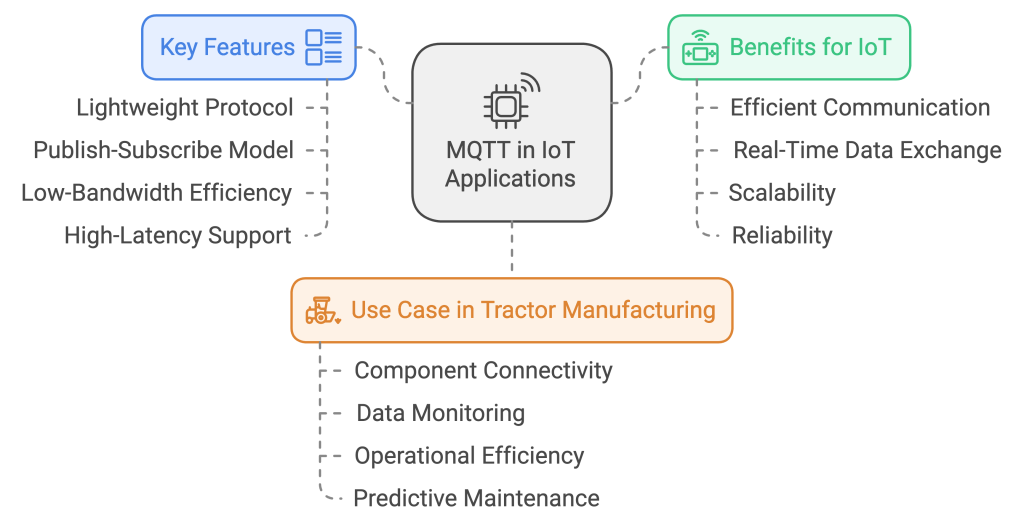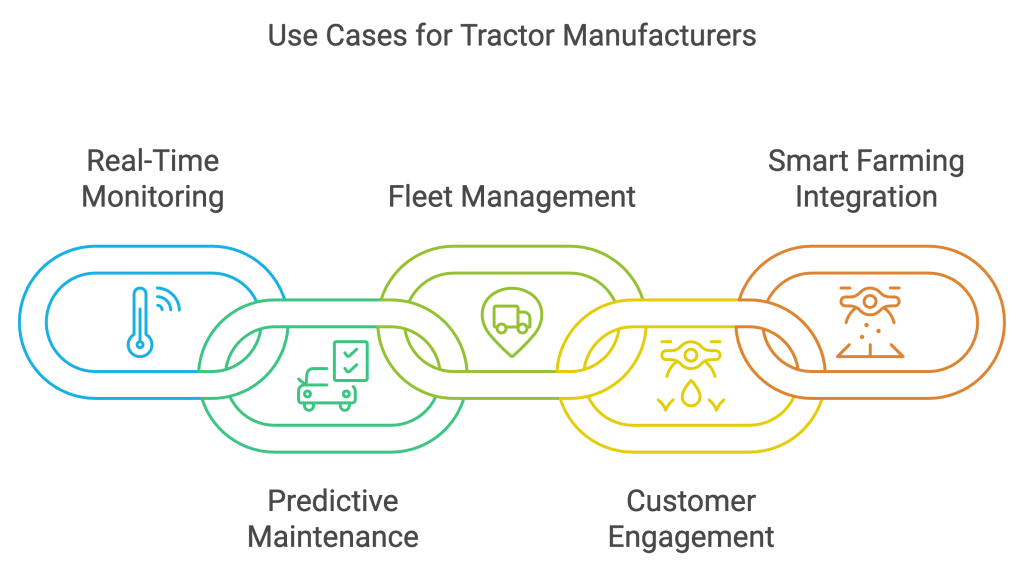MQTT Use Case for Tractor Manufacturers
In the rapidly evolving agricultural sector, tractor manufacturers are increasingly leveraging Internet of Things (IoT) technologies to enhance their products and services. One of the key protocols facilitating this transformation is MQTT (Message Queuing Telemetry Transport). This document explores how MQTT can be effectively utilized by tractor manufacturers to improve operational efficiency, enhance customer experience, and enable predictive maintenance.
Overview of MQTT
MQTT is a lightweight messaging protocol designed for low-bandwidth, high-latency networks. Its publish-subscribe model allows devices to communicate efficiently, making it ideal for IoT applications. For tractor manufacturers, MQTT can serve as the backbone for connecting various components of their machinery, enabling real-time data exchange and monitoring.

Use Cases for Tractor Manufacturers
1. Real-Time Monitoring and Data Collection
Tractors equipped with IoT sensors can transmit data regarding engine performance, fuel consumption, and soil conditions in real-time using MQTT. This data can be collected and analyzed to provide insights into operational efficiency, allowing manufacturers to offer tailored solutions to their customers.
2. Predictive Maintenance
By continuously monitoring the health of tractor components, manufacturers can predict potential failures before they occur. MQTT facilitates the transmission of diagnostic data to a central server, where machine learning algorithms can analyze the information and alert operators about necessary maintenance, thus reducing downtime and repair costs.
3. Fleet Management
For companies operating multiple tractors, MQTT can be used to track the location and status of each vehicle in real-time. This capability allows fleet managers to optimize routes, monitor fuel usage, and ensure that equipment is being used efficiently, ultimately leading to cost savings and improved productivity.
4. Enhanced Customer Engagement
Tractor manufacturers can utilize MQTT to create mobile applications that provide customers with real-time updates about their equipment. Features such as alerts for maintenance needs, performance analytics, and usage statistics can enhance customer engagement and satisfaction.
5. Integration with Smart Farming Solutions
As the agricultural industry moves towards smart farming, MQTT can facilitate the integration of tractors with other IoT devices, such as drones and soil sensors. This interconnectedness allows for more precise farming practices, improving crop yields and resource management.

Conclusion
The adoption of MQTT by tractor manufacturers presents numerous opportunities to enhance product offerings and improve operational efficiencies. By leveraging this protocol, manufacturers can provide real-time monitoring, predictive maintenance, and integrated smart farming solutions, ultimately leading to better customer experiences and increased competitiveness in the market. As the agricultural landscape continues to evolve, embracing IoT technologies like MQTT will be crucial for manufacturers looking to stay ahead.
